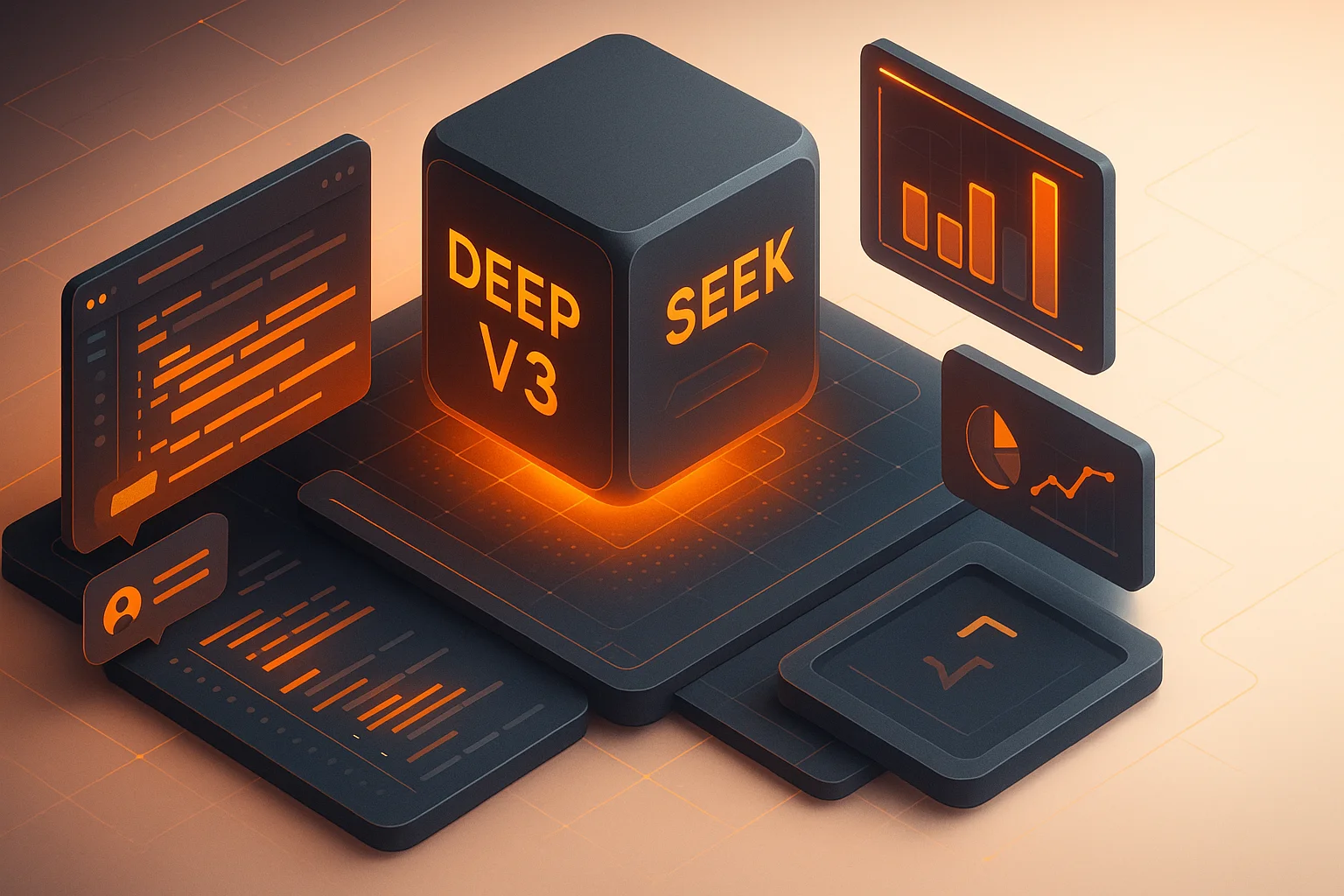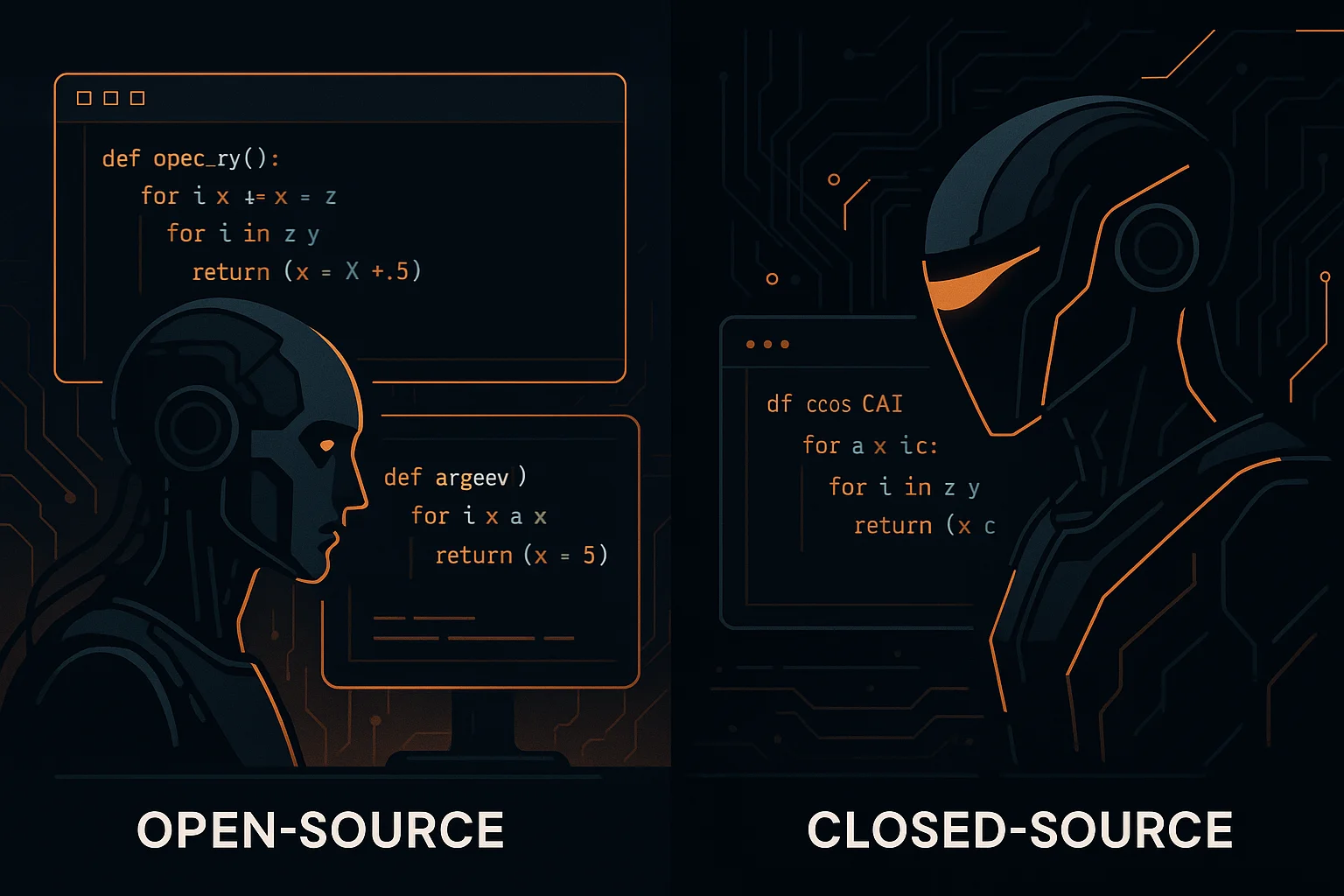LM Arena Coding Leaderboard: What Developers Need to Know

The LM Arena coding leaderboard has become the gold standard for evaluating AI models on programming tasks. Understanding these rankings is crucial for engineering teams choosing the right AI tools for their workflow.
Current Leaderboard Leaders
The latest LM Arena results reveal significant developments in AI coding capabilities. The landscape has evolved dramatically with the introduction of specialized coding platforms like WebDev Arena and Copilot Arena, which provide more realistic evaluations of real-world development scenarios.
🏆 Top Performers in 2025
SWE-bench Performance Rankings
Claude 4 Sonnet demonstrates exceptional performance while maintaining better cost-efficiency than its Opus counterpart. The model shows particular strength in multi-file editing and complex refactoring tasks.
DeepSeek V3 has emerged as a formidable open-source contender, topping the Chatbot Arena open-source leaderboard with an Elo score of 1,382. It's approximately 30 times more cost-efficient than OpenAI's o1 while being 5 times faster.
OpenAI o3 achieved remarkable results in competitive programming with an Elo score of 2727 on Codeforces, substantially surpassing its predecessor o1's score of 1891. This represents a massive improvement in algorithmic problem-solving capabilities.
Code Generation vs Code Review
The distinction between code generation and code review capabilities has become increasingly important as specialized evaluation platforms emerge. Copilot Arena, launched recently, focuses specifically on code completion and inline editing tasks, revealing significant performance differences across models.
💡 Code Completion Performance
In code completion tasks, Claude models and DeepSeek V2.5 have emerged as top contenders, separating themselves from the competition. Surprisingly, with minor prompt modifications, Claude can compete effectively with code-specific models like DeepSeek V2.5 on "fill-in-the-middle" tasks.
💡 Key Finding: Position Bias
82% of accepted completions were the top-displayed option. However, this bias affects models differently - when shown as the bottom completion, Claude Sonnet 3.5 maintains a 23.4% acceptance rate compared to Gemini Flash's 12.8%.
🔍 Review and Refactoring Capabilities
For code review tasks, Claude 4 Opus shows exceptional performance in sustained reasoning and complex multi-step development workflows. Early reviews note it as "the first model that boosts code quality during editing and debugging without sacrificing performance or reliability."
Gemini 2.5 Pro excels in rapid debugging cycles with quick responses and fewer bugs in generated code, making it ideal for iterative development. However, it can be "too defensive" in coding approaches, sometimes over-engineering solutions.
Language-Specific Performance
The Aider polyglot benchmark evaluates models across 225 challenging coding exercises in multiple languages including C++, Go, Java, JavaScript, Python, and Rust. This multi-language approach reveals significant performance variations across different programming paradigms.
High-Level Language Performance
Python and JavaScript remain the dominant languages in most evaluations, with models generally showing their strongest performance in these ecosystems. Claude 4 Opus demonstrates exceptional Python performance, particularly in data science and machine learning contexts.
Gemini 2.5 Pro's massive 1 million token context window provides significant advantages for large Python codebases and complex JavaScript applications, enabling better understanding of project structure and dependencies.
Systems Programming Challenges
Systems languages like Rust and Go present unique challenges for AI models. The polyglot benchmark reveals that while top models can handle basic syntax, they struggle with memory management concepts and advanced concurrency patterns specific to these languages.
WebDev Arena has introduced a new dimension by evaluating models on complete web application development rather than isolated functions. This reveals how models handle the integration of HTML, CSS, and JavaScript in real-world scenarios.
What This Means for Your Team
Leaderboard performance is essential for staying competitive, but it's just one piece of the puzzle. The key insight is that no single model dominates all coding tasks, and different models excel in different scenarios.
💰 Cost vs Performance Trade-offs
| Model | Performance | Pricing (per 1M tokens) | Best For |
|---|---|---|---|
| Claude 4 Opus | 🏆 Highest (72.5%) | $15/$75 | Complex reasoning |
| Claude 4 Sonnet | ⭐ High (72.7%) | $3/$15 | Best balance |
| OpenAI o3 | ⭐ High (69.1%) | $2/$8 | Algorithms |
| Gemini 2.5 Pro | ✅ Good (63.2%) | $1.25/$10 | Large codebases |
| DeepSeek V3 | ✅ Good | $0.27/$1.10 | Cost efficiency |
💰 Pricing Note
Pricing format shown as input/output tokens per million. OpenAI o3 recently reduced prices by 80% making it significantly more affordable at $2/$8. DeepSeek V3 offers the most cost-effective option at $0.27/$1.10, while Claude 4 Sonnet provides the best performance-to-cost ratio at $3/$15.
🎯 Task-Specific Model Selection
🏗️ Complex refactoring
Claude 4 Opus excels at sustained reasoning across multiple files
⚡ Rapid iteration
Gemini 2.5 Pro's speed and large context window enable quick debugging cycles
🧮 Competitive programming
OpenAI o3's algorithmic capabilities shine in complex problem-solving
💻 Code completion
Claude and DeepSeek models lead in real-time assistance
🔧 Integration and Consistency Considerations
Beyond raw performance, consider factors like:
- ✓API reliability and uptime for production deployments
- ✓Integration complexity with existing development tools
- ✓Team training and adoption requirements
- ✓Data privacy and security considerations for enterprise use
Beyond the Rankings
💡 Key Insight
No single model is a one-size-fits-all solution. While benchmarks provide useful comparisons, they don't capture the nuanced requirements of real-world development workflows.
🌐 The Multi-Model Reality
Different models excel in different post-training scenarios:
Claude 4 Opus
Complex reasoning tasks and sustained analysis
Gemini 2.5 Pro
Rapid iteration with large codebases
OpenAI o3
Algorithmic problem-solving excellence
Traditional benchmarks like HumanEval and CodeXGLUE focus on function-level generation, but real development involves understanding project context, maintaining code quality across multiple files, and integrating with existing systems. This is where specialized platforms like WebDev Arena provide more realistic evaluations.
👁️ The Vision-Code Integration Factor
Modern development increasingly involves visual references - UI mockups, design systems, and architectural diagrams. WebDev Arena's integration of vision capabilities reflects this reality, showing how models handle multi-modal development tasks that traditional text-only benchmarks miss.
⚡ Why Individual Model Selection Isn't Enough
The best AI-powered development tools don't rely on a single model. They orchestrate multiple models based on task requirements:
💻 Code completion
Fast, context-aware models for real-time assistance
🏗️ Complex refactoring
High-reasoning models for architectural changes
🔍 Code review
Models optimized for finding bugs and suggesting improvements
📜 Documentation
Models that excel at explaining and documenting code
The Multi-Model Approach: Propel's Strategy
🚀 At Propel, we've learned that the future of AI-powered development lies in intelligent model orchestration rather than betting on a single model.
Our platform leverages the latest and greatest models including Claude 4 Opus, Claude 4 Sonnet, Gemini 2.5 Pro, OpenAI o3, and DeepSeek V3.
🎯 Smart Model Routing
We automatically route different tasks to the models that perform best for each scenario:
Code reviews
Leverage Claude 4 Opus for complex reasoning and sustained analysis
Quick iterations
Use Gemini 2.5 Pro for rapid feedback and large codebase understanding
Algorithmic problems
Route to OpenAI o3 for competitive programming-style challenges
Cost-sensitive operations
Utilize DeepSeek V3 for high-volume, standard tasks
This approach delivers superior results compared to any single model while optimizing for cost, speed, and accuracy based on the specific task at hand. Rather than forcing you to choose between models, we provide the best of all worlds.
🏢 Building Multi-Model AI Products
💡 If you're building an AI product, the LM Arena insights are clear: leverage multiple models.
The competitive landscape is moving too fast for any single model to dominate across all use cases. By building intelligent routing systems that use each model's strengths, you can deliver the best possible experience for your users.
The winners in the AI space won't be those who pick the "best" model, but those who orchestrate all the best models to create superior user experiences.
🚀 This is the future of AI-powered development tools.
Multi-Model Intelligence with Propel
Propel integrates multiple top-performing models from the LM Arena, giving your team access to the best capabilities for each specific coding task.


